- Home
- Robin Cook
Viral Page 13
Viral Read online
Page 13
“Hannah!” Brian yelled over his shoulder. “Go ahead and call an ambulance!”
Glad to have something to do, Hannah struggled to get her phone out of her pocket. She hit emergency and dialed 911, then put her phone to her ear.
“Tell the operator it could be a status epilepticus!” Brian shouted. “Tell them that an ALS ambulance is needed.”
“What’s an ALS ambulance?”
“Advanced life support!” Brian shouted back.
Since Emma’s convulsions were still making considerable noise in the hospital bed, Hannah stepped out into the hallway. A moment later, with the phone still pressed against the side of her head, she returned and called out to Brian: “How long has the seizure been going on?”
“I don’t know,” Brian cried. “Say five minutes.”
Hannah left again but was back quickly to stand next to Aimée. “Okay, an ALS ambulance is on its way.”
Brian didn’t answer. His concerns were quickly mounting as his wife was even more blue than she’d been just a few moments earlier. “Hurry, please!” he said under his breath.
“C’est très inquiétant!” Aimée said, catching Brian’s words despite the noise Emma was making.
“Of course it’s worrisome!” Brian responded irritably at what he thought was a foolish thing to say.
Suddenly a pitiful scream crying “Mommy!” penetrated the clatter Emma was making in the bed. All eyes turned to the doorway to see Juliette’s form silhouetted against the backlight.
Aimée was the first to react, and she rushed to the doorway and guided Juliette away with soothing words. A moment later Camila appeared, taking in the commotion. “I’m so sorry,” she blurted out. “I turned my back just for a second, and Juliette was out of the kitchen.”
Brian didn’t answer. As the seconds ticked by and Emma’s lividity deepened, he was getting more and more concerned, since Emma’s seizure was now at least twice as long as her first. “Someone should go down to the front door and let in the ambulance medics!” he shouted to no one in particular.
“I’ll go,” Camila said quickly, glad to do something to appease her guilt. She disappeared before anyone could respond.
“Will the medics be able to stop the seizure?” Hannah asked nervously. Though clearly still distraught, she’d recovered enough to come around the bed and was standing across from Brian.
“Who the hell knows!” Brian snapped insensitively. He was becoming so concerned himself that he wasn’t thinking properly.
After what seemed like hours but had been only ten to fifteen minutes, undulating sirens could be heard. It was music to Brian’s ears. From the sounds he could tell there was more than one vehicle, which surprised him. Quickly the sirens reached a crescendo, and then trailed off and stopped, indicating the vehicles were outside. A few minutes later four medics, one woman and three men, rushed into the guest room carrying a wide variety of equipment, including a stair chair used to get patients up and down flights of stairs. All of them were outfitted in full protective gear due to the pandemic.
The woman, clearly in charge and taking command, crowded Brian to the side. The noise from Emma’s thrashing became louder. “I’m Alice, a paramedic, and this is George, my partner,” she said quickly, motioning to the man who had gone to the other side of the bed. He was carrying an instrument case. “How long has the patient been convulsing?”
“I’m not sure,” Brian admitted, but he knew it was important to give an answer. “Probably more than twenty minutes.” Brian, along with Hannah, backed up into the doorway leading out into the hall.
“Okay!” Alice said, looking at George. “Break out the Arrow Intraosseous drill.”
“What do you want for the injection?” George yelled as he opened the case and took out what looked like a normal carpenter’s drill.
“Versed, five milligrams,” Alice said. Then, looking at the two other medics, she added: “Tom, I need a glucose! And, Bill, set up an oximeter! She’s looking way too cyanotic. And set up oxygen with a nasal cannula.”
“I can’t watch this,” Hannah said, and fled to find Aimée, Juliette, and Camila.
Brian stayed riveted where he was. Although worried sick about Emma, he couldn’t help but be impressed and reassured with the speed and confidence the medics were displaying. Most impressive was how much modern medics could do in the field. In olden times, meaning just a decade or so earlier, ambulance drivers were just that: drivers. They went out and brought victims to the hospital for care. Nowadays it was totally different, with paramedics starting lifesaving treatment right at the scene just like they were doing here. He was hopeful that they’d be able to stop the seizure quickly.
To Brian’s great relief, within only a minute or so after the intraosseous injection, Emma’s agonizing full-body contractions slowed and then mercifully disappeared altogether. Quickly the medics took her vital signs. Alarmingly, Brian could see that Emma hadn’t regained consciousness despite the seizure having stopped.
“Pulse is steady and blood pressure is low,” Alice said, removing her stethoscope from her ears. “How about her oxygen level?”
“Not great,” George said. “Below ninety but she seems to be breathing okay.”
“Let’s hook up an ECG and get her into the stair chair,” Alice said. “Come on! Move it! We have to get this one to the ED now!”
Tom and Bill picked up the stair chair and brought it next to the hospital bed, which gave Brian an idea of the hierarchy with the medics. Alice and George were paramedics, manning the ALS ambulance, and Tom and Bill were EMTs probably manning a BLS ambulance, or basic life support. As Tom and Bill organized the safety straps in preparation for securing Emma in the carrier, Alice and George collapsed the hospital bed’s rails in unison. The moment they did, almost as if in response, Emma exploded into another full-blown seizure.
“Draw up another ten milligrams of Versed!” Alice barked while she and George made sure Emma didn’t convulse herself off the bed now that the side rails were lowered. A few seconds later Alice was handed the appropriately filled syringe, which she used to inject the drug into the cannula still positioned into Emma’s marrow cavity. Emma’s convulsions immediately began to slow and then stopped. Alice was pleased until she tried to take Emma’s blood pressure, at which point she realized that Emma had no blood pressure and no pulse, even though the ECG that George had attached was showing a slow but regular heartbeat. She wasn’t breathing, either.
“Good lord!” Alice exclaimed. “We’re looking at PEA. Start CPR stat!”
George climbed up onto the bed to start chest compressions. Alice took an ambu bag from Tom, attached the oxygen line to it, and then started respiring Emma.
Brian was horrified at this sudden turn of events, watching his thirty-four-year-old wife being given CPR and knowing she was at death’s door. It was as if he was caught in a nightmare and couldn’t wake up. Nor could he even move.
“How the hell could she have PEA?” George demanded between compressions.
“I don’t know for sure, but I suspect loss of vascular resistance,” Alice said. “Tom, draw up one milligram of epinephrine and give it stat.”
“Circulatory collapse from anoxia?” George asked. He paused momentarily to allow Tom to connect a syringe to the tibial cannula.
“Yes,” Alice said. “This is the kind of case where I wish to hell we had the capability for some kind of emergency electroencephalographic tracing to be one hundred percent, but that’s my guess. Well, more than my guess. It’s the only explanation.”
Despite feeling like he wanted to run away and hide, Brian couldn’t move. Knowing things had just gone from bad to worse, he was desperate to at least understand what was happening, so he managed to lean toward Bill, who for the moment was idle. “What’s PEA?”
Obviously distracted, Bill still turned to Brian. “Pulseless
electrical activity,” he said. “The heart’s trying to beat, but it can’t. It usually means there’s little or no blood coming into the heart because it’s all pooled peripherally due to circulatory collapse.”
Before Bill could explain more, Alice called out to him to run down on the double and bring up the Lucas CPR, a battery-driven cardiac compression device. As Bill headed out the door, he had to dodge Hannah, who was on her way in. Fearing what she was about to see, Brian intercepted her, blocking her view of the spectacle taking place.
“What’s happening?” Hannah said, trying to peer around Brian’s body. “How is Emma doing? Has the seizure stopped?”
“It’s important for you and everyone else to stay out of the way,” Brian cried out, purposefully evading Hannah’s question. “Where is Aimée?”
“She’s in the kitchen with the others. I just want to be sure Emma is okay.”
“They are attending to her,” Brian said evasively. “Really, it’s better for you not to be here.” To back up what he was saying, Brian herded Hannah out the door into the hallway. At that moment Bill was rushing up the stairs carrying the Lucas device, and he squeezed past into the guest room. “They’ll be taking Emma to the hospital very shortly,” Brian added. “You join the others. I’ll go along with Emma if possible, and I’ll call you guys just as soon as I can.”
“All right,” Hannah said reluctantly, and backed up a few steps. She then fled down the stairs.
When Brian returned to the guest room, he could hear from Alice’s order that Tom was giving yet another dose of epinephrine, a major cardiovascular stimulant, meaning the first dose probably hadn’t had any effect. Stepping over to the foot of the bed, Brian spoke to Alice, who, with George, was rapidly setting up the Lucas. “I’ve had EMT training,” Brian said. “Can you tell me what’s happening here?”
“Sorry. We’ve got to get this patient out of here. I don’t have time to explain.”
Once they had the Lucas machine giving the chest compressions, they transferred Emma from the hospital bed to the stair chair. It was obvious to Brian that these people had prior experience working together since everyone knew their role without a lot of talk or direction. Then with Alice walking alongside and doing the breathing, Tom and Bill maneuvered the stair chair out of the guest room, down the stairs, and out the front door. George brought up the rear carrying the rest of the equipment. Brian followed, grabbing a face mask off of the foyer’s console table and putting it on. Outside, a few of the neighbors who’d come out of their homes in response to the sirens silently watched as Emma was rapidly loaded into the ALS ambulance. For Brian there was a sense of unreality about the whole scene, especially with everyone wearing face masks. It was as if he were participating in a science-fiction horror movie. Alice leaped in the back to ride with Emma. George started for the cab, but Brian grabbed his arm.
“She’s my wife,” he rasped. “Can I ride in the ambulance?”
“Of course,” George said. “Hop in!”
As Brian climbed into the front of the ambulance, he felt even more like he was caught in a nightmare that he couldn’t escape. The fact that his wife was in the back, fighting for her life, seemed so far-fetched that it couldn’t possibly be true.
CHAPTER 14
August 31
Riding in the ambulance with the siren wailing was a true déjà vu for Brian, reminding him of countless trips he’d made in one of the ESU heavy vehicles speeding out to handle some kind of disaster like an active shooter or a hostage incident. When you were a member of the NYPD ESU, most every call was a serious event, which required being prepared for the worst. The good and bad part of that was it was never boring like being a patrolman could be. As the ambulance drew closer to MMH Inwood, he found himself wishing he was back on the force and in an anonymous ESU transport, as it would mean Emma wasn’t in the back struggling for her life.
George and Alice had used the radio to let the MMH Inwood Emergency Department know what they were facing, namely a patient in extremis and receiving CPR. Brian heard the back-and-forth exchanges with growing alarm. What tormented him was Alice’s request for an emergency electroencephalogram with neurological consult. He knew that was out of the ordinary for someone with a run-of-the-mill cardiac arrest and receiving CPR.
At the ED receiving bay, a group of doctors, nurses, and orderlies, all in full personal protective gear and face shields, were waiting, including a rugged-looking, slim, white-haired man and the ranking emergency physician on the shift, Dr. Theodore Hard. By the time Brian had quickly climbed out of the ambulance’s cab, Emma was already on her way inside with the Lucas apparatus pumping and Alice still respiring her with the ambu breathing bag. Brian had to run to catch up. He knew he probably wasn’t supposed to follow, but he did anyway, and in the commotion, no one questioned his presence despite the fact that he was the only person without an impermeable protective gown and face shield.
The entire group raced into one of the Level 1 trauma rooms, where Emma was transferred from the ambulance gurney to the table. Brian stayed in the background while Dr. Hard yelled orders to set up an ECG, place an oximeter, and start an intravenous even though the tibial cannula was still in place. The oximeter gave a reading of 95 percent, suggesting that the CPR had been effective. The moment the electrocardiogram blip appeared, tracing across the monitor, everyone could see there was electrical activity, but it was obviously not normal. It was also quickly determined that when the Lucas was switched off, there was no pulse and no blood pressure. Instantly they reinstated CPR with manual compressions while Alice, who had not stopped using the ambu bag, quickly summarized for Dr. Hard what had happened in the victim’s home and in the ambulance, listing the medications that had been given and the approximate duration of the initial seizure. She made a point of emphasizing how cyanotic the patient had been, and then described how surprised she was to be confronted with pulseless electrical activity after the second seizure and what she thought it meant.
“I think you are probably correct,” Dr. Hard said. He’d been nodding as Alice had related what they’d done. After Alice finished her rapid synopsis, he took a small penlight from his pocket, bent over, and checked Emma’s pupils. “Uh-oh! No reaction whatsoever,” he stated as he straightened upright. “That’s not encouraging, to say the least. It suggests no brain stem reflexes. Okay! Let’s get the neuro guys down here and do an emergency electroencephalogram. Meanwhile, continue the CPR and draw blood for electrolytes, glucose, and troponin just to be sure.”
As the only person in normal street clothes, Brian felt that he stood out like a sore thumb and was expecting to be asked to leave at any moment. Taking advantage of a new flurry of activity, enacting Dr. Hard’s latest orders, Brian glanced around the trauma room, quickly spotting a long, white doctor’s coat hanging on the back of a door. Trying not to garner attention, he walked over, lifted the coat from its hook, and slipped it on. It was unreasonably snug, but he couldn’t be choosy. He was aware there was a name tag, but he couldn’t make it out upside down. So attired, he felt considerably less out of place and only hoped no one asked him any difficult medical question, which would surely expose him as an outsider.
A few minutes later Alice and George informed Dr. Hard they had to call in their home base and be available for their next run. After they’d gathered their belongings and said goodbye to all, George recognized Brian despite the white coat and approached.
“Wait a minute, are you a doctor?” George asked, momentarily confused. He leaned forward and read the name tag on Brian’s doctor’s coat. “Dr. Janice Walton? I don’t think so. I’m sorry, but you really shouldn’t be in here.”
Brian started to desperately explain that he needed to be with his wife.
“Sorry,” George repeated. “I can only imagine how wrenching this must be for you, but you aren’t allowed back here.” He called out to one of the ED nurses named Tamara Reyes, w
ho came over immediately. George explained that Brian was Mr. Murphy, the patient’s husband.
“Good lord! Have you been watching all this?” Tamara said, eyeing him as he struggled out of the doctor’s coat and returned it to its hook. “You poor, poor man. How did you get in here? Oh, never mind. Follow me! I’ll take you out to the lobby. You should have gone out there to sign in your wife.”
Resigned to having been discovered and mildly surprised he’d managed to stay undetected as long as he had, Brian followed Tamara. Out in the lobby there was a line of people waiting to check in, but Tamara ignored them and called out to one of the clerks. She introduced Brian as Mr. Murphy, the husband of the CPR victim, and told her to get all the info and a signed release pronto.
For the next fifteen minutes he gave all the usual information, including the Peerless policy number. As he did so, he wondered how Peerless might try to evade covering this emergency visit since Emma certainly hadn’t walked in. He also wondered if the hospital computer would immediately spit out that he owed the institution almost two hundred thousand dollars when the clerk entered his name. If it had, the clerk didn’t let on. After Brian signed what he needed to sign, he was free to find a place to sit. He chose a spot at the far end of the room, as far as possible from any other people.
Time dragged. Minutes seemed like hours. At one point he took out his phone to call home, more just to connect than anything else since he didn’t have anything yet to report. As he held his phone, he noticed his hand was trembling. Try as he might, he couldn’t stop it, and he realized it was because every muscle in his body was contracted. Changing his mind about calling anyone, he used his phone to check his email, but he did so with unseeing eyes. He couldn’t concentrate. What he was really attempting to do was occupy his mind so as not to think about what was going on back in the trauma room, yet it was impossible. In his mind’s eye he kept seeing the horrifying image of Emma being given CPR. From his EMT training and experience as a police officer, he knew all too well what that could mean if the patient didn’t respond immediately.

 Shock
Shock Mutation
Mutation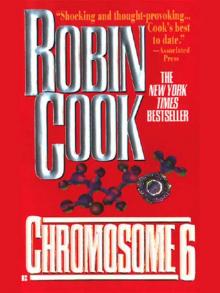 Chromosome 6
Chromosome 6 Brain
Brain Intervention
Intervention Invasion
Invasion The Legend of Parzival: The Epic Story of His Quest for the Grail
The Legend of Parzival: The Epic Story of His Quest for the Grail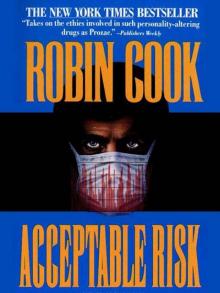 Acceptable Risk
Acceptable Risk Cell
Cell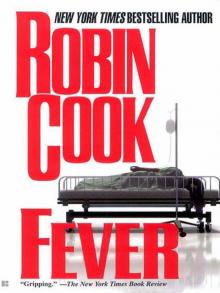 Fever
Fever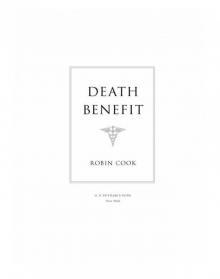 Death Benefit
Death Benefit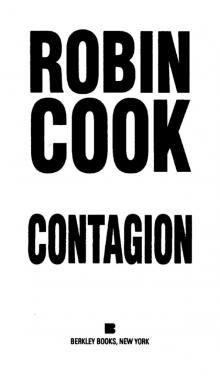 Contagion
Contagion Mindbend
Mindbend Coma
Coma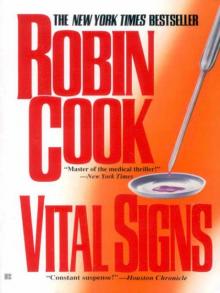 Vital Signs
Vital Signs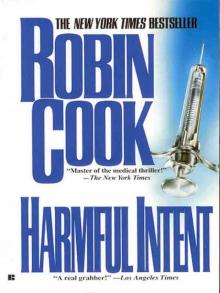 Harmful Intent
Harmful Intent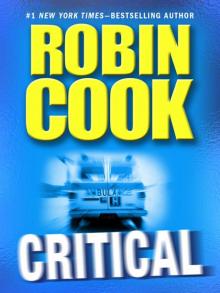 Critical
Critical Foreign Body
Foreign Body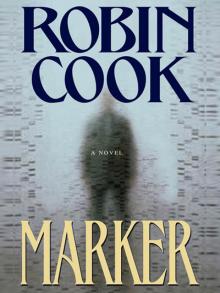 Marker
Marker Blindsight
Blindsight Terminal
Terminal Sphinx
Sphinx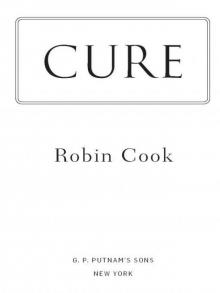 Fatal Cure
Fatal Cure Host
Host Charlatans
Charlatans Crisis
Crisis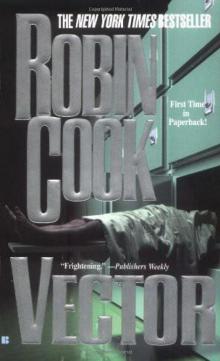 Vector
Vector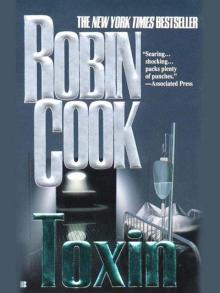 Toxin
Toxin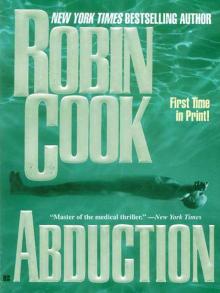 Abduction
Abduction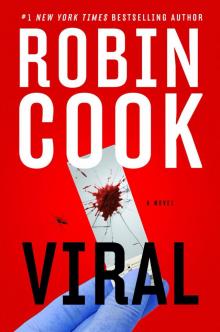 Viral
Viral Pandemic
Pandemic Outbreak
Outbreak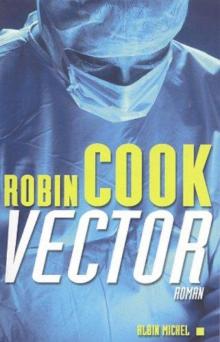 Vector js&lm-4
Vector js&lm-4 Godplayer
Godplayer A Brain
A Brain Year of the Intern
Year of the Intern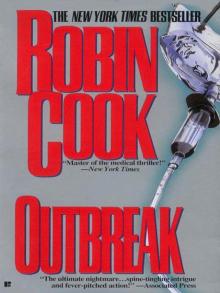 Outbreak dmb-1
Outbreak dmb-1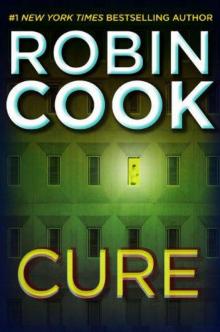 Cure
Cure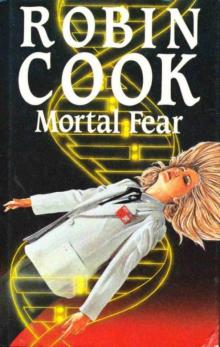 Mortal Fear
Mortal Fear The Legend of Parzival
The Legend of Parzival Vital Signs dmb-2
Vital Signs dmb-2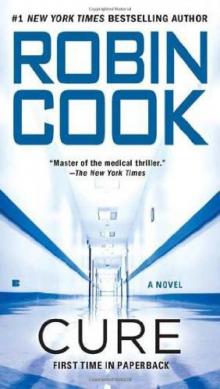 Cure (2010) sam-10
Cure (2010) sam-10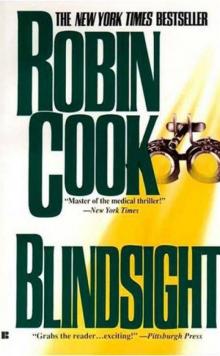 Blindsight sam-1
Blindsight sam-1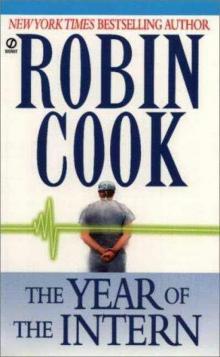 The Year of the Intern
The Year of the Intern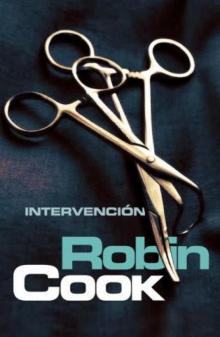 Intervention sam-9
Intervention sam-9 Foreign Body sam-8
Foreign Body sam-8